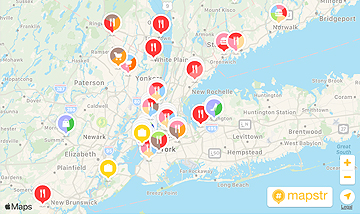Climate disruption/Rendez-vous du Quai d’Orsay
Paris, May 14, 2014
(…)
We have 500 days – not a day more – to avoid a climate disaster. People often talk about climate change or global warming. I attach great importance to words, and as far as the French language is concerned I don’t think those words are very appropriate, because – without alluding to this or that political programme – change is seen as rather a positive thing, but in the case of climate, it isn’t at all. Some French people say: why not, since they might think Lille, for example, is going to join the Côte d’Azur? That’s absolutely not it. We must face up to climate disruption, climate chaos. The scientists, several of whom are present here, have said it: “you’d have to be blind not to see it”
We’re pursuing the goal of limiting the global temperature increase to 2ºC. But the IPCC’s latest report talks to us about 4-5 ºC, with cataclysmic consequences. We have 500 days to try and reverse the scenario, because in December 2015 French diplomacy – in this case I myself – will have the huge honour of chairing the 2015 Paris climate conference. And we mustn’t confuse France’s role as chair of the conference with France’s role as a country that must help ensure things go in the right direction at European level.
Five hundred days is extremely short. We’ve started working – many others with us. I’ll give you just a schedule of the main dates.
A whole series of meetings, at both European and international level, is going to be held in the coming weeks. Among other things, there’s a very important meeting in July. There’s also a date we must bear in mind which will, I hope, be very important: 23 September. United Nations Secretary-General Ban Ki-moon has decided to organize a special session at the United Nations where very major world leaders will commit their countries by setting out their plans for the coming years.
Then, at the end of this year, there will be the COP20, which will be held in Peru and preceded by a pre-COP, due to be held in Venezuela.
It will be very important, because the agreement we’re leaning towards involves commitments, texts and discussions that must be prepared a long time in advance.
One of the reasons why Copenhagen didn’t produce the results we were counting on was because we set about it at the last moment, and whatever the calibre of the men and women concerned – and even if they’re great political leaders – you can’t manage it. You have to prepare it all a very long time in advance. So by means of the work the United Nations Secretary-General will do, by means of the work our Peruvian colleagues will do – backed by the Poles, who are currently in the follow-up phase to the Warsaw conference – we’d like to be able to put things in place.
Then, at the beginning of 2015, it’s been agreed that countries will have to enter into commitments for the future since COP21 focuses on what has to be done post-Kyoto in 2020. We must hope that, beforehand, Europe will have managed to make commitments, because it has to set an example. The report by the Commission is well done, but so far no decision has been taken. Europe has to take decisions so it can tell others that it has done its bit and that the other countries must try and do theirs. Concurrently, a lot of work will have to be done, particularly on issues to do with financing, because the countries in difficulty, the poor and less poor ones, are inevitably going to ask who’s going to pay.
Following these meetings, there will – let’s hope – be success at the end of 2015. This will be a huge issue, both because of the significance of what will be going on and because in Paris – more specifically, Le Bourget – there will be a gathering of 25,000 people. A decision will have to be taken by consensus at that point. Our experts will today be explaining to us what a legally binding agreement is, what a positive agenda can be – something which may not solve everything, but would help halt the 4 to 5ºC rise, i.e. a cataclysm.
Thanks to the decisions we took and which will subsequently be developed, we’ll manage to control it and get back down to two degrees and to a liveable existence. This is no small matter because unlike many spheres, life itself is at stake here. Diplomats, in every country of the world, are going to have to discuss things and work them out. (…)./.
(1) A series of conferences/discussions at the French Foreign Ministry focusing on a particular area of foreign policy – in this case, the 2015 Paris climate conference.














